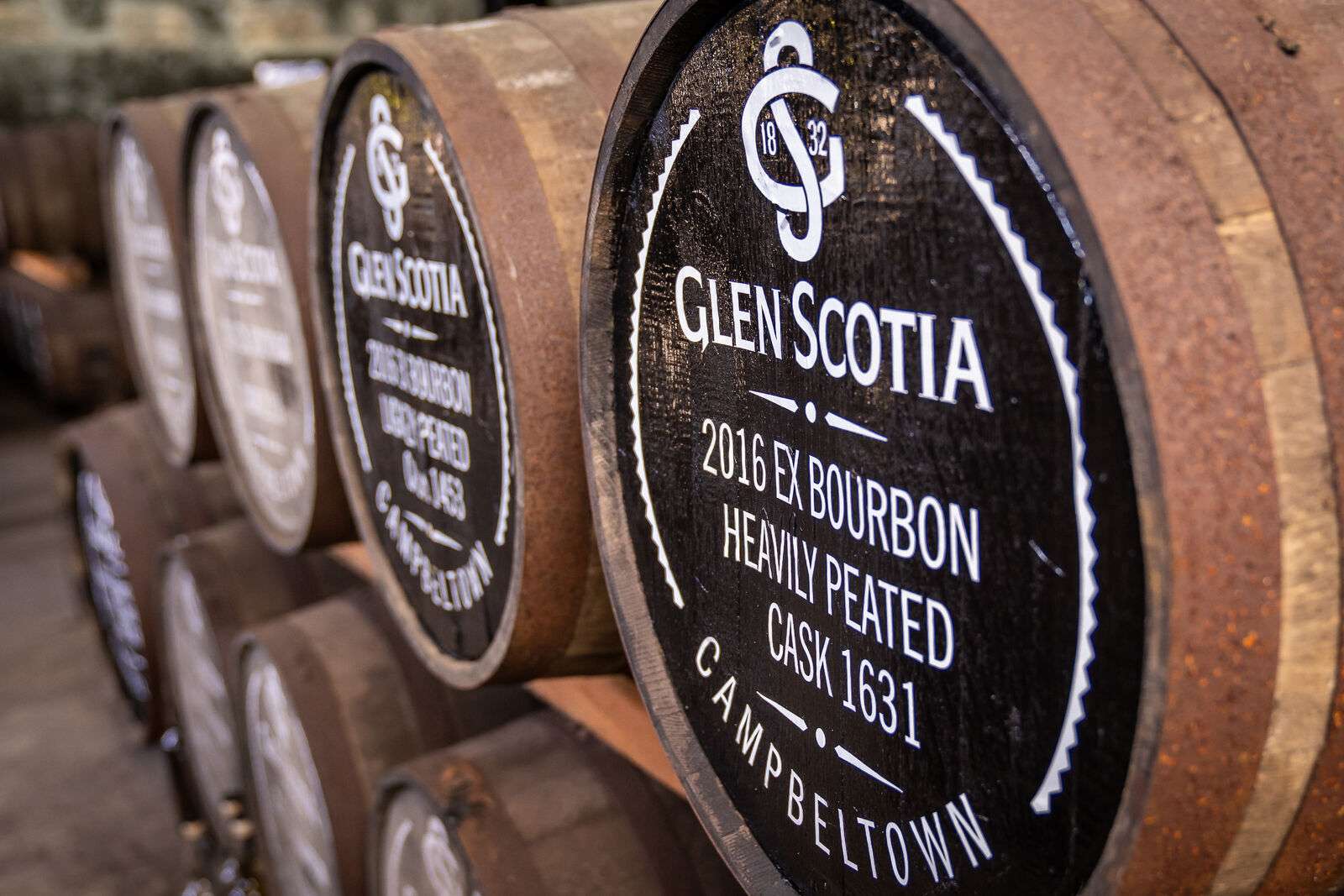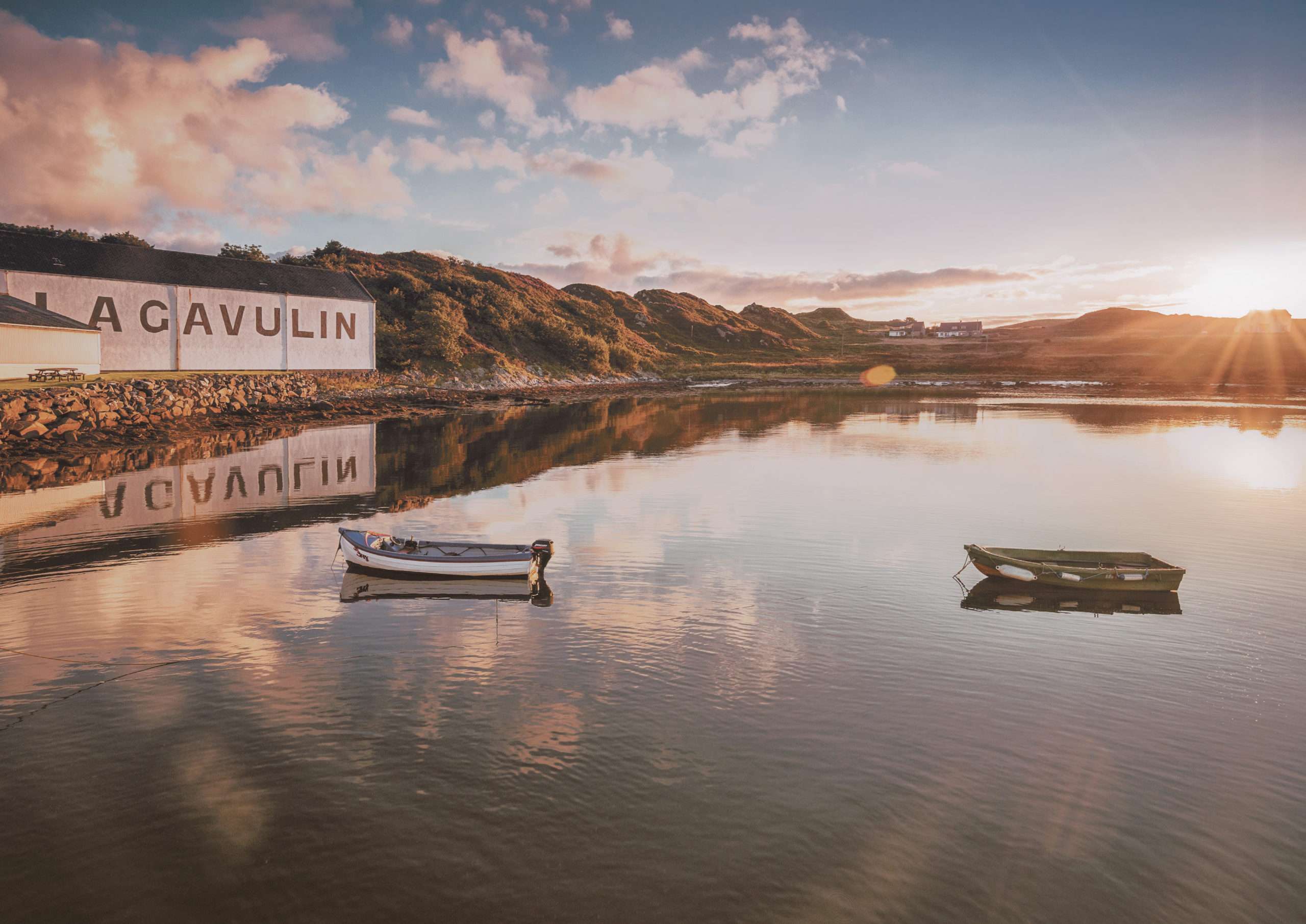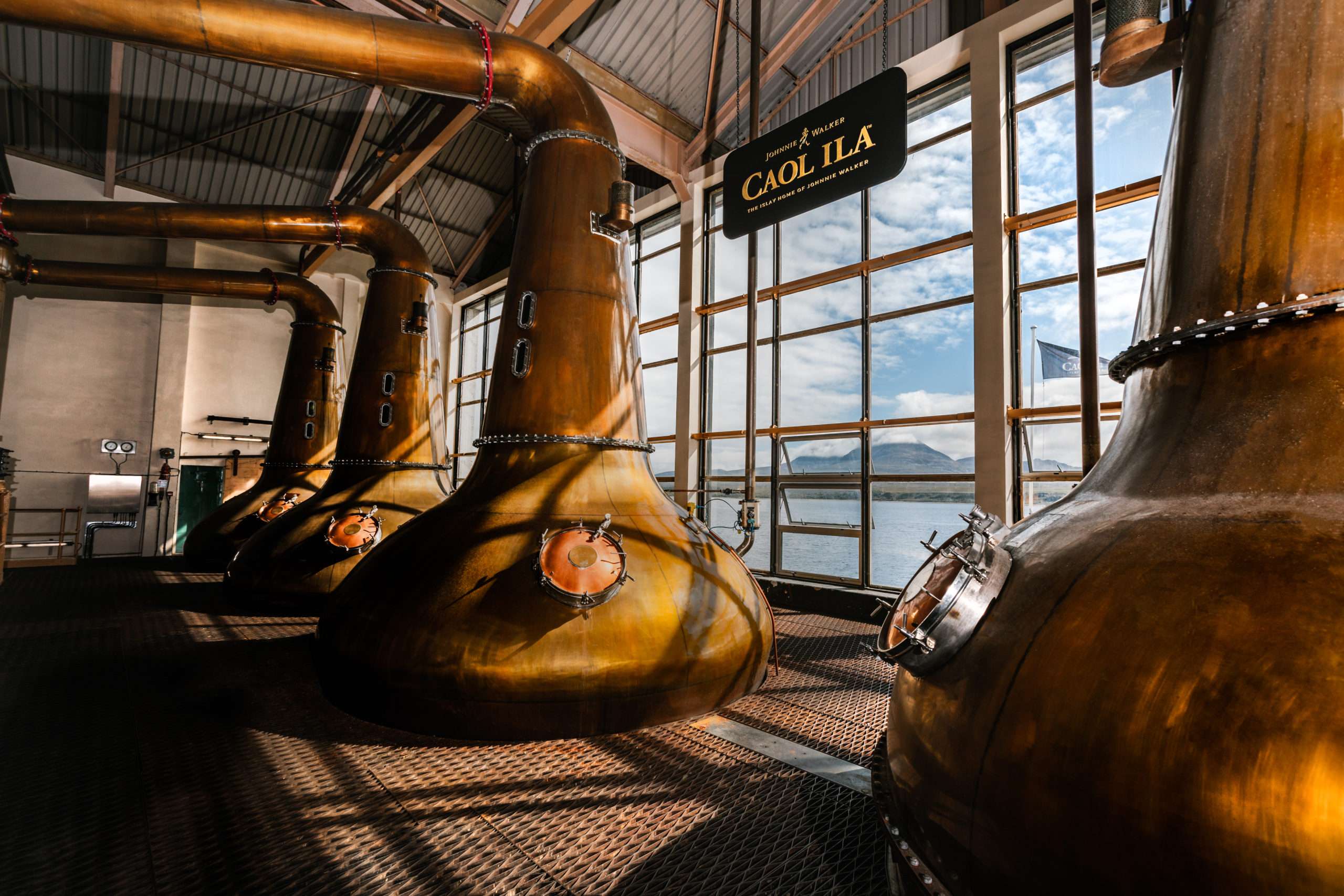The Argyll and Isles Tourism Cooperative has launched a new Whisky Year Zero commemoration to mark this year’s 200th anniversary of the 1823 Excise Act, which was published on 18 July 1823. The act, which sanctioned the distilling of whisky in return for a licence fee, played a key role in shaping Argyll and the Isles as Scotland’s Whisky Coast – an area which encompasses four of Scotland’s recognised whisky regions – Campbeltown, Islay, Highlands (Oban and Loch Lomond) and Islands (Jura and Tobermory).
‘Whisky Capital of the World’

Recognising the significance of the year, particularly to Argyll’s one-time ‘Whisky Capital of the World’, Whisky Year Zero celebrates the destination’s distinct whisky heritage by showcasing the wide range of sites, festivals and experiences whisky lovers can experience in Argyll and the Isles until June 2024. This includes brand new distillery openings, such as the reopening of the historic Port Ellen Distillery on Islay, more than 35 years after it was closed and almost 200 years since it first opened in 1824 as one of the first distilleries to be licensed after the 1823 Excise Act.
The commemoration is being welcomed by leading historians and whisky aficionados, including Pro Vice Principal at the University of Glasgow Bradley Professor Murray Pittock; Master of the Quaich (the whisky industry’s highest accolade) author Dr Nick Morgan; fellow Master of the Quaich acclaimed whisky writer Charles MacLean; and founder of World Whisky Day consultant Blair Bowman. Launching the commemoration Cathy Craig, CEO of the Argyll and Isles Tourism Cooperative said: “We’re delighted to launch Whisky Year Zero to celebrate the rich whisky, or uisge beatha, heritage that has shaped communities and culture throughout Argyll and the Isles. Known as Scotland’s Whisky Coast due the high volume of world-class distilleries dotted along our coastline, there are so many ways in which visitors to the area can learn more about our significant whisky history and why our destination, with its abundance of fertile landscapes, produces some of Scotland’s finest food and drink.”
Explaining the importance of the commemoration, Professor Murray Pittock, Bradley Professor and Pro Vice Principal at the University of Glasgow said: “Understanding our past gives us confidence in our ability to shape the future, so it is vital that we continue to remember key historical moments. Commemorations like Argyll & the Isles’ Whisky Year Zero, that take the time to bring history to life, can play a central role in addressing this.”
Throughout Whisky Year Zero, Glen Scotia, one of three distilleries remaining in Campbeltown, is offering immersive whisky experiences that take visitors behind the scenes and back in time, to discover more the history of their whisky, including how the Excise Act led to their hometown town being proclaimed the one-time Whisky Capital of the World.
Hannah Young, Visitor Centre Manager at Glen Scotia said: “Our historical distillery still maintains much of its original design dating from the 1830s, including our Dunnage Warehouse, so our celebrated heritage and history still influence the award-winning whisky produced here. The 1823 Excise Act played a key role in our formation and those who come on one of our distillery tours can learn all about the impact it made on our town.”
Explaining the significance of the act on Argyll and the Isles, renowned Whisky Writer and Master of the Quaich Charles Maclean said: “The 1823 Excise Act laid the foundations for the Scotch whisky industry by fixing the method of Scotch whisky distillation as we know it today. The Argyll and Isles Tourism Cooperative is to be congratulated for celebrating this significant piece of legislation, which made it possible for Campbeltown to become ‘the world whisky capital’ in the late 19th century and for Islay to become the world’s leading pilgrimage destination for whisky lovers today. Before the Act, distilling in the region was mainly illicit; today it is burgeoning.”
Professor Pittock added: “The 1823 Excise or Wash Act led to a boom in the whisky industry. Local businesspeople and landowners saw vast opportunities in the market, and in Campbeltown developments supported by the Duke of Argyll saw the creation of some 30 distilleries in a town of around three thousand people – it was certainly, as it proclaimed, ‘the Whisky Capital of the World’ in per capita terms at least.”
Reinforcing the scale of industry growth at that time, Dr Nick Morgan, Master of the Quaich, whisky aficionado and author of the book Everything You Need to Know About Whisky (but are too afraid to ask) said: “In 1821 there were eleven licensed distilleries in Argyll producing around 40,000 gallons of whisky a year. Only one, owned by John Beith, was in Campbeltown. By 1826, three years after the passing of the 1823 Excise Act, there were thirty-four distilleries in Argyll producing some two-hundred thousand gallons a year.”
Uisge beatha

Though there are less distilleries than there once was in the area, whisky and now gin production is still a significant industry across Argyll and the Isles, as Whisky Year Zero highlights. The commemoration showcases 14 world-class whisky distilleries, a myriad of whisky experiences, festivals and distillery openings across the destination. Welcoming the celebration and explaining why Argyll and the Isles is such an important whisky destination, whisky enthusiast, founder of World Whisky Day and author of The Pocket Guide to Whisky, Blair Bowman said: “Uniquely for a Scottish destination, Argyll and the Isles encompasses four of Scotland’s recognised whisky regions, earning it the title of Scotland’s Whisky Coast. During Whisky Year Zero, I would encourage all visitors to celebrate by going on a distillery-hoping journey of discovery across Argyll and the Isles to explore the real impact Scotland’s iconic uisge beatha or ‘water of life’ has had on culture and communities in the area, and what makes each of the whisky regions different. There is also something quite extraordinary about drinking a whisky in the same places where the whisky was made. It really enhances the experience. Each whisky is very unique, their flavours tell an important part of history too. Whisky is quite literally known in Scottish Gaelic as the Water of Life, uisge beatha, which is very apt. There is something magical about each and every sip. When you pick up a glass from Argyll and the Isles, you’re not just picking up a drink, you’re picking up a story of Scottish life too. It tells you story of history, a story of culture and a story of craftmanship – from the farmers producing barley to the unique distillation processes.”
Emma Clark AITC Vice Chair, official Argyll & the Isles Food & Drink Ambassador and owner of Glenegedale Guesthouse on Islay (where they serve food platters on top of a reclaimed whisky barrel and even give guests the opportunity to enjoy local whisky in their porridge) agreed: “With our rich fertile lands and world-leading producers, we make and supply some of the very best food and drink, including whisky, right here in Argyll and the Isles. Whisky Year Zero provides the perfect excuse for visitors to go on a culinary journey of discovery to responsibly enjoy our sensational local produce, our unique land and waters, tantalising food trails, world class distilleries and vast amount of award-winning eateries to suit all tastes.”
To find out more about Whisky Year Zero visit: www.wildaboutargyll.co.uk/whisky-year-zero

